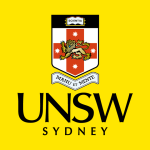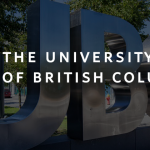Popular Topics
- AI/ML
- All About Universities
- Australia
- Canada
- Data Science / Analytics
- Denmark
- Dubai
- Environmental / Sustainability
- Finland
- France
- Germany
- Ireland
- Latest News
- Malaysia
- MBA/ Business
- Middle East
- New Zealand
- Poland
- Post Study & PR
- Program Selection
- Qatar
- Saudi Arabia
- Scholarships
- Spain
- STEM / Engineering
- Student Visa
- Study Destination
- Study Options By Subject
- Sweden
- Tests & Grades
- Thailand
- The Netherlands
- Travel, Stay, Culture Training
- UAE
- UK
- USA
Post-Study Ireland Work Visa: What Indian Students Need to Know
- June 10, 2025

If you’re an Indian student planning to study in Ireland, or already enrolled, understanding the post-study Ireland work visa rules is crucial.
Ireland offers one of the most student-friendly immigration policies in Europe, with a clear pathway from graduation to employment. This blog breaks down everything Indian students need to know about Ireland’s post-study work options.
What is the Post-Study Work Visa in Ireland?
Officially known as the Third Level Graduate Scheme, Ireland’s post-study visa lets international students, including Indian nationals, stay back in Ireland temporarily after graduation to find a job, gain work experience, or transition into long-term employment.
Who is Eligible?
| Criteria | Details |
|---|---|
| Nationality | Non-EU/EEA (Includes Indian students) |
| Degree Level | Level 8 (Honours Bachelor’s – 1 year stay back) Level 9 or 10 (Master’s or PhD – 2 years stay back) |
| Institution | Recognized Irish higher education institution |
| Status at Time of Application | Valid student visa (Stamp 2) |
| Completion Proof | Final results and official confirmation of degree |
Duration of Stay Back Based on Degree Level
| Qualification | Stay Back Period |
|---|---|
| Level 8 – Honours Bachelor’s Degree | Up to 12 months |
| Level 9 – Master’s Degree | Up to 24 months (initial 12 months + 12-month extension) |
| Level 10 – PhD | Up to 24 months |
What Can You Do on the Post-Study Visa?
| Permission | Details |
|---|---|
| Work Rights | Full-time (up to 40 hours/week) |
| Job Search | Allowed to search for employment relevant to your degree |
| Transition to Work Permit | Eligible to apply for Critical Skills Employment Permit or General Work Permit while on Stamp 1G |
| Self-Employment | Not permitted under this scheme |
| Dependent Family | Not eligible to bring dependents under this permission |
How to Apply for the Stay-Back Visa (Stamp 1G)?
- Finish your degree and receive your final results.
- Obtain a graduation confirmation letter from your college/university.
- Book an appointment with your local Garda National Immigration Bureau (GNIB) or ISD office.
- Bring the required documents:
- Valid passport
- Existing Irish Residence Permit (IRP) card
- Proof of address in Ireland
- Letter confirming degree completion
- Pay the €300 visa renewal fee (subject to change).
- You’ll be granted Stamp 1G, which allows you to live and work full-time in Ireland.
You Might Also Like: Ireland 2-Year Stay-Back Visa After PG + Top Career Opportunities in Tech & Pharma
What Happens After the Stay-Back Period?
To remain in Ireland beyond the stay-back visa:
| Pathway | What to Do |
|---|---|
| Secure a Job | Look for roles listed under the Critical Skills Occupations List |
| Apply for a Permit | Transition to a Critical Skills or General Employment Permit |
| Residency | After holding a valid work permit for 5 years, you may apply for Stamp 4 (long-term residency) |
Top Tip: Critical Skills Employment Permit
Ireland encourages talent retention in specific sectors.
If you secure a job offer with a minimum salary of €32,000–€64,000/year in eligible fields (e.g., IT, pharma, engineering), you can apply for a Critical Skills Employment Permit, which fast-tracks your path to permanent residency.
Popular Courses That Lead to Post-Study Work
| Course | Industry Relevance | Top Universities |
|---|---|---|
| MSc in Computer Science | Tech, software, cybersecurity | TCD, UCD, DCU |
| MSc in Data Analytics | Tech, finance | NCI, TUD, UL |
| MSc in Biotechnology | Pharma, life sciences | UCC, Galway, UL |
| MSc in Engineering Management | Cross-functional industries | UCD, UL, TUS |
Special Notes for Indian Students
- Irish institutions recognize Indian degrees for admission into PG programs.
- IELTS is commonly required, with the accepted score of 6.5 overall.
- Most Indian students opt for STEM and business courses, which align well with Ireland’s critical skill shortages.
- There is no cap on the number of post-study visas issued to Indian students.
Ireland vs Other Abroad Destinations – Post-Study Work Visa
| Feature | Ireland | UK | USA | Canada |
|---|---|---|---|---|
| Post-Study Stay Back (Master’s) | 2 years | 2 years | 1–3 years (OPT) | 3 years |
| PR Pathway | Yes (via employment) | Possible, longer process | Lengthy, uncertain | Yes |
| Language | English | English | English | English |
| Work Rights | 40 hrs/week (full-time) | 40 hrs/week | 40 hrs/week | 40 hrs/week |
Need Personalized Help?
Still not sure how to plan your post-study time in Ireland?
Let Admitix guide you through every step throughout – from choosing the right course and university in Ireland to understanding visa rules and job prospects.
Get a FREE expert consultation today and make your Ireland dream a successful reality with confidence!
FAQs – Post-Study Ireland Work Visa Rules
Can Indian students apply for a post-study visa in Ireland?
Yes, Indian PG graduates can stay up to 2 years under Stamp 1G.
Is a job offer required to apply for the stay-back visa?
No, you only need to complete your course and apply within 6 months.
Can I bring my spouse or dependents on Stamp 1G?
No, dependents are not allowed under Stamp 1G.
What jobs qualify for Critical Skills Permits?
Jobs in IT, pharma, engineering, finance, and healthcare.
Can you work part-time during the study period?
Yes, students can work 20 hours/week during term and 40 hours during breaks.



